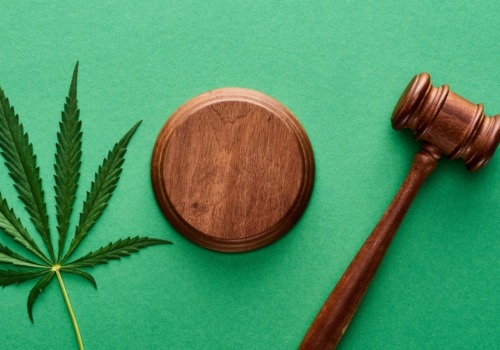Recent studies have shown that medical marijuana is more effective in controlling the pain and nausea of chemotherapy treatments and in increasing the appetite of AIDS patients to combat wasting than any of the traditional medicines approved by the FDA. Marijuana is currently legal, at the state level, in 29 states and in Washington, DC. It's still illegal from the federal government's perspective. The Obama administration did not make medical marijuana processing a lower priority.
President Donald Trump vowed not to interfere with people who use medical marijuana, although his administration is currently threatening to reverse this policy. About 85% of Americans support the legalization of medical marijuana, and it is estimated that at least several million Americans currently use it. Advanced Research The ban on marijuana has thwarted research in the United States to discover the best and most effective uses of marijuana as a medicine. Legalization would make it possible to advance research into the medical benefits of marijuana.
The survey found strong support for those legalization efforts, and most doctors said medical marijuana should be legal in their states. They agreed that medical marijuana should be an option for patients. The survey included doctors from more than 12 specialties and 48 states. Legal Marijuana Presents Potential for Huge Benefits for Local and National Economies.
It could also help secure investors' investment portfolios across the country and elsewhere as well. While Marijuana Remains Federal Illegal, It's Difficult for Investors to Capitalize on Industry Growth. The number of marijuana-related companies listed on public stock exchanges is minuscule, and while investors have the option of working with over-the-counter exchanges, many of the most successful businesses in the initial cannabis legal space are based in Canada or other countries. Researchers should evaluate marijuana using the same standards as other medications to see if it is valuable in managing any condition.
As mentioned above, more than 25 states in the United States have amended their laws to legalize the medical use of marijuana. Marijuana has been shown to relieve symptoms of a wide variety of serious medical conditions, such as cancer, AIDS and glaucoma, and is often an effective alternative to synthetic pain relievers. This is not intended to be an inclusive list, but rather to provide a brief survey of the types of conditions for which medical marijuana can provide relief. I have been using medical marijuana from DC for four years to treat my fibromyalgia, other health problems and even recovery from my addiction.
However, as medical marijuana becomes more common around the world, researchers are conducting more studies. Neurologists reported the highest number of patients asking if medical marijuana could help them (70%). In 1970, the United States Congress placed marijuana on Schedule I of the Controlled Substances Act because they considered that it had “no accepted medical use”. A consumer survey on WebMD had similar levels of support for medical marijuana among the general public.
There are few issues that can arouse stronger emotions among doctors, scientists, researchers, legislators and the public than medical marijuana. Medical marijuana remains controversial, but is gaining ground as a legitimate recommendation for several symptoms. If marijuana were legalized nationwide, marijuana companies would be free to list their shares throughout the United States. These specialties are also the most likely to say that marijuana should be a medical option for patients (82%).
They cite dozens of peer-reviewed studies, prominent medical organizations, important government reports and the use of marijuana as a medicine throughout world history. .










